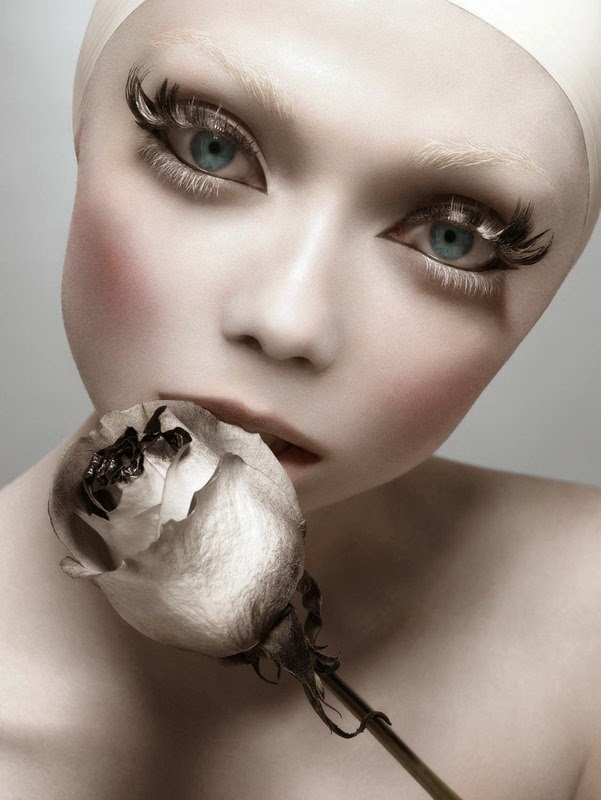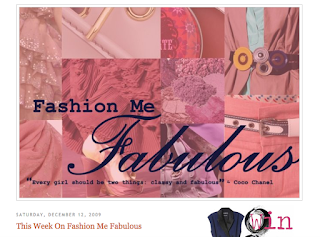How To Dress For An Interview
Full disclosure, I hate the term "professional attire." It is frequently relied on as a euphemism for "not manly enough." Thus I'm irked that color, ruffles and a-line skirts get short shrift in the work world. Knowing that I have this tick, I decided to consult some people who hire in a variety of fields. The following advice was extrapolated from the experiences of a small business owner, a small retailer, two managers and a director from a large international business, a journalist and chair of a university department, and the head of a charter academy. Their advice may surprise you hard-line suit people.
Know your audience. Consider what the position is, who you will be working with, and the culture of the place you are interviewing.
If you are applying to a law firm, financial institution, government position, or some other conservative occupation, wear nothing but a suit, but don't think you can skate by with a black jacket and skirt from Forever 21 either. That won't cut it at a bank. Your suit had better be nice, and it had better be tailored. The business director I spoke to said navy is perceived as more professional than black. Try not to deviate from navy, black, white, cream and grey.
If you're going to be spending more time working with the public instead of in meetings, wear something approachable. In a previous career, I worked with children. I always wore a color and something with a soft line. My highest concerns were that I looked accessible and modest. See below for an example of something I'd wear to an interview.
Three of the people I spoke to mentioned shoes. They felt that even more so than your clothing, your shoes spoke to your expectations of the job. Wear shoes that you could wear to perform the job. (Hint, that's not your killer red pumps.)
Be clean and neat. My job, for example, is very casual. My boss would have no problem with someone showing up for an interview in jeans, but dirty torn jeans raise questions about the prospective employee's ability to care for their own person.
To go a step beyond regular clean and neat, clip and file your nails and then give them a good clear coat. Pull your hair back so it is out of your face and you won't be tempted to play with it. Do not wear perfume as the person interviewing you may have an allergy.
Be modest. I shouldn't have to say that, but if the stories I heard from these professionals is any indication, some women don't grasp the concept of coverage. No knees (so you don't have to worry about showing thigh when you cross your legs). Keep your curves to yourself. No cleavage! And to err even further on the side of caution, only wear something sleeveless if you will be keeping it covered with a jacket or cardigan the entire time. (Why? Because many women are unaware of how much bra they flash when they move in a sleeveless blouse.)
Think about the movements that may be required for the job and make sure you're not exposing anything in the process. The outfit below is something a teacher could wear to an interview. I expounded on it earlier, but the reason I included the tee shirt isn't because a tee is work appropriate. Rather the tee acts as an undergarment in case stretching the arm would expose the back or stomach.
Avoid flash. Don't wear too much jewelry. Don't try out a new trend. Don't wear statement anything. Don't put anything -- like a scarf or earrings -- too close to your face.
Don't wear too much makeup. Pale brown eyeshadow and a swipe of mascara will make you look awake. Wear a neutral, matte lipstick like brown or pink. Do not wear red lipstick no matter how retro pinup you are on the inside.
Be comfortable. Don't wear brand new clothes since you don't know if they'll be itchy or move strangely. If you've never worn a suit before but purchased one for an interview, just wear it at your house beforehand. Constantly pulling at your skirt or collar just creates visual noise.
And once you've landed the job, look at my Polyvore gallery of fun office attire.
Know your audience. Consider what the position is, who you will be working with, and the culture of the place you are interviewing.
If you are applying to a law firm, financial institution, government position, or some other conservative occupation, wear nothing but a suit, but don't think you can skate by with a black jacket and skirt from Forever 21 either. That won't cut it at a bank. Your suit had better be nice, and it had better be tailored. The business director I spoke to said navy is perceived as more professional than black. Try not to deviate from navy, black, white, cream and grey.
Most other jobs, you can wear a nice blazer or cardigan instead of a suit. Wear a color, but don't wear too much. It's certainly not the time for neon. Wear colors that compliment your skin. For example, I look like death in black when I'm under florescent lights, but if I wear an orange or pink shirt with the rest of my black attire, I look bright and healthy.
If you're going to be spending more time working with the public instead of in meetings, wear something approachable. In a previous career, I worked with children. I always wore a color and something with a soft line. My highest concerns were that I looked accessible and modest. See below for an example of something I'd wear to an interview.
Three of the people I spoke to mentioned shoes. They felt that even more so than your clothing, your shoes spoke to your expectations of the job. Wear shoes that you could wear to perform the job. (Hint, that's not your killer red pumps.)
Be clean and neat. My job, for example, is very casual. My boss would have no problem with someone showing up for an interview in jeans, but dirty torn jeans raise questions about the prospective employee's ability to care for their own person.
To go a step beyond regular clean and neat, clip and file your nails and then give them a good clear coat. Pull your hair back so it is out of your face and you won't be tempted to play with it. Do not wear perfume as the person interviewing you may have an allergy.
Be modest. I shouldn't have to say that, but if the stories I heard from these professionals is any indication, some women don't grasp the concept of coverage. No knees (so you don't have to worry about showing thigh when you cross your legs). Keep your curves to yourself. No cleavage! And to err even further on the side of caution, only wear something sleeveless if you will be keeping it covered with a jacket or cardigan the entire time. (Why? Because many women are unaware of how much bra they flash when they move in a sleeveless blouse.)
Think about the movements that may be required for the job and make sure you're not exposing anything in the process. The outfit below is something a teacher could wear to an interview. I expounded on it earlier, but the reason I included the tee shirt isn't because a tee is work appropriate. Rather the tee acts as an undergarment in case stretching the arm would expose the back or stomach.
Avoid flash. Don't wear too much jewelry. Don't try out a new trend. Don't wear statement anything. Don't put anything -- like a scarf or earrings -- too close to your face.
Don't wear too much makeup. Pale brown eyeshadow and a swipe of mascara will make you look awake. Wear a neutral, matte lipstick like brown or pink. Do not wear red lipstick no matter how retro pinup you are on the inside.
Be comfortable. Don't wear brand new clothes since you don't know if they'll be itchy or move strangely. If you've never worn a suit before but purchased one for an interview, just wear it at your house beforehand. Constantly pulling at your skirt or collar just creates visual noise.
And once you've landed the job, look at my Polyvore gallery of fun office attire.






Comments
Do accordion pleats usually keep their shape? can you find more knee length accordion pleated skirt/dress?
Everywhere I look its minis and wrinkly/fluffy cotton/polyester A-line skirt. Accordion pleats in satin speaks of refinement and elegance to me.=)
Fanya, I'll look for some accordion pleats for you, but they can in fact be horrible to care for. Dry cleaning! If I don't get to this, drop me an email. I'm sort of forgetful. (That skirt, by the way, is McQueen from a few years ago.)